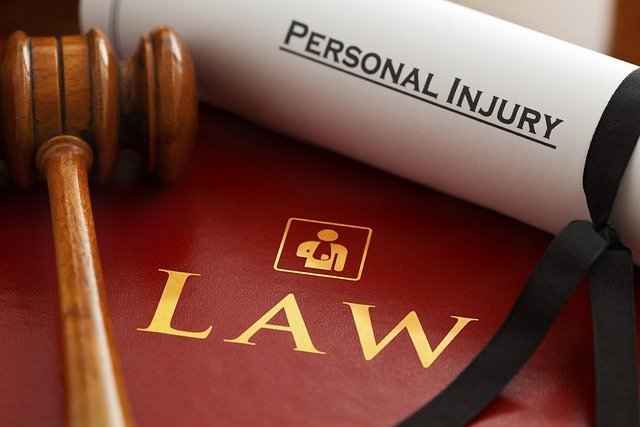Labor Lawyer Guide
A law degree provides the foundation for a career as a labor lawyer, helping workers navigate complex employment laws and workplace disputes. Labor lawyers serve as vital advocates for employees facing discrimination, unfair termination, wage disputes, and unsafe working conditions. Understanding the educational pathway, specialization options, and practical applications of a law degree in labor law can help prospective attorneys make informed career decisions and provide effective legal representation for workers in need of support during workplace conflicts.

What Education Is Required for Labor Lawyer Services?
The journey to becoming a labor lawyer begins with obtaining a bachelor’s degree in any field, though majors in political science, history, economics, or business can be particularly helpful. After completing undergraduate studies, aspiring labor lawyers must attend law school to earn a Juris Doctor (J.D.) degree, which typically takes three years of full-time study. During law school, students interested in labor law should focus on courses covering employment law, labor relations, collective bargaining, workplace discrimination, and administrative law.
Many law schools offer specialized certificates or concentrations in labor and employment law, providing deeper knowledge in this practice area. After earning a J.D., graduates must pass the bar examination in the state where they wish to practice. Some labor lawyers also pursue advanced degrees such as an LL.M. (Master of Laws) with a concentration in employment law to develop specialized expertise and enhance their credentials in this competitive field.
How Workplace Rights Attorneys Advocate for Employees
Workplace rights attorneys serve as essential advocates for employees facing various forms of mistreatment or legal issues at work. These specialized lawyers help workers understand their rights under federal laws like the Fair Labor Standards Act, the Americans with Disabilities Act, Title VII of the Civil Rights Act, and various state-specific employment laws.
When representing clients, labor lawyers investigate claims, gather evidence, interview witnesses, and build cases to address issues such as workplace discrimination, sexual harassment, wrongful termination, wage theft, and violations of family and medical leave protections. They often negotiate with employers or their legal representatives to secure settlements before proceeding to litigation. If cases go to court, workplace rights attorneys represent their clients through every stage of the legal process, from filing complaints with government agencies like the Equal Employment Opportunity Commission to arguing cases in court and handling appeals if necessary.
What Does an Employment Law Guide Cover?
A comprehensive employment law guide provides information about the rights and responsibilities of both employers and employees under various labor laws. For labor lawyers, mastering this knowledge is essential to effective practice. Key areas covered in employment law guides include:
-
Wage and hour laws, including minimum wage requirements, overtime pay regulations, and proper employee classification
-
Workplace safety standards and compliance with Occupational Safety and Health Administration (OSHA) regulations
-
Anti-discrimination protections based on race, gender, age, religion, disability, and other protected characteristics
-
Employee benefits requirements, including health insurance, retirement plans, and family and medical leave
-
Union organization rights, collective bargaining processes, and labor relations standards
-
Whistleblower protections and anti-retaliation provisions
-
Immigration compliance for employment verification and work authorization
Labor lawyers must stay current with evolving employment laws through continuing legal education and professional development to provide accurate guidance to their clients.
When to Seek Legal Help for Workers in Employment Disputes
Workers should consider seeking legal help when facing potentially unlawful treatment in the workplace. Common situations warranting consultation with a labor lawyer include:
Experiencing discrimination based on protected characteristics like race, gender, age, disability, or religion
Being denied proper wages, overtime pay, or benefits
Facing sexual harassment or a hostile work environment
Being terminated under potentially unlawful circumstances
Experiencing retaliation for reporting illegal activities or exercising legal rights
Needing assistance with workers’ compensation claims after workplace injuries
Requiring guidance on employment contracts, non-compete agreements, or severance packages
Early consultation with a labor lawyer can help employees understand their rights, preserve evidence, meet filing deadlines for complaints, and develop effective strategies for addressing workplace issues. Many labor lawyers offer free initial consultations to evaluate potential cases, making legal help accessible to workers from various economic backgrounds.
How Workplace Dispute Resolution Works with Legal Representation
Workplace dispute resolution encompasses various approaches to addressing and settling conflicts between employers and employees. Labor lawyers guide clients through these processes, which include:
Informal negotiations directly with employers to resolve issues before formal complaints
Alternative dispute resolution methods like mediation and arbitration
Administrative proceedings before government agencies such as the Equal Employment Opportunity Commission or Department of Labor
Formal litigation through state or federal courts
Labor lawyers help clients navigate these options by evaluating the strengths and weaknesses of each case, recommending the most appropriate resolution path, preparing necessary documentation, representing clients during proceedings, and negotiating settlements. The lawyer’s goal is to achieve the best possible outcome while minimizing the emotional and financial costs of prolonged disputes.
Labor Lawyer Specialization and Career Paths
Labor lawyers often develop specializations within employment law to address specific workplace issues or represent particular types of clients. Common specializations include:
| Specialization Area | Primary Focus | Key Skills Required |
|---|---|---|
| Discrimination Law | Cases involving workplace bias based on protected characteristics | Strong knowledge of civil rights laws, investigative abilities |
| Wage and Hour Issues | Unpaid wages, overtime violations, misclassification | Detailed understanding of FLSA and state wage laws |
| Union Representation | Collective bargaining, grievances, labor organizing | Negotiation skills, labor relations knowledge |
| Workers’ Compensation | Workplace injury claims and benefits | Understanding of occupational injuries and benefits systems |
| Employment Litigation | Representing clients in court proceedings | Trial experience, persuasive argument skills |
Prices, rates, or cost estimates mentioned in this article are based on the latest available information but may change over time. Independent research is advised before making financial decisions.
Labor lawyers can work in various settings, including private law firms representing employees or employers, government agencies enforcing labor laws, corporate legal departments, nonprofit organizations advocating for workers’ rights, and labor unions. Each career path offers different opportunities for specialization, compensation structures, and work-life balance. Most labor lawyers find their practice area particularly rewarding because of the direct impact their work has on individuals’ livelihoods and workplace dignity.




